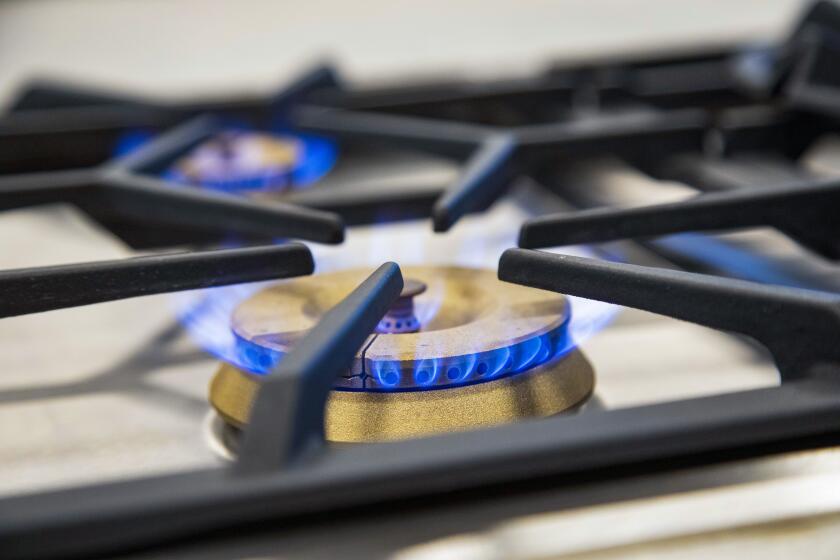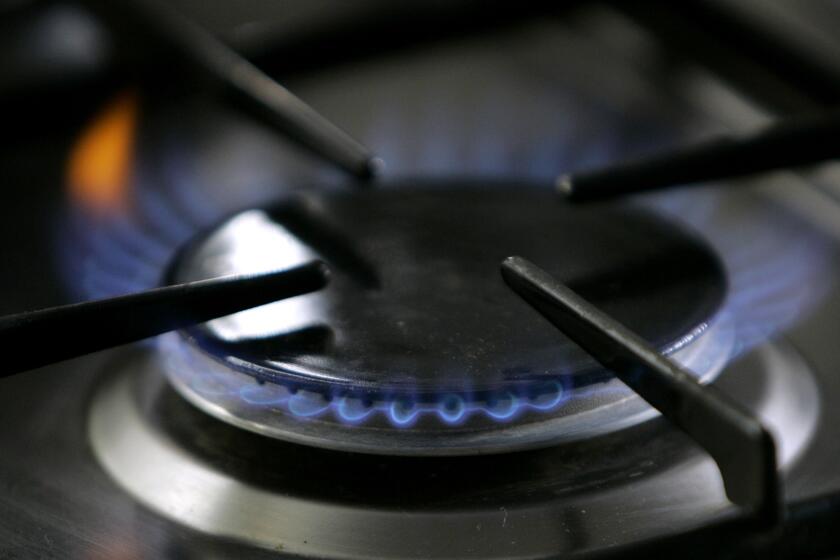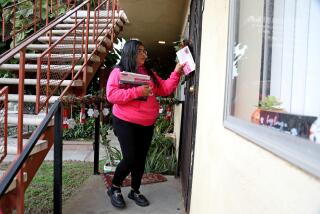How to safely restart your wall heater — and get help if needed
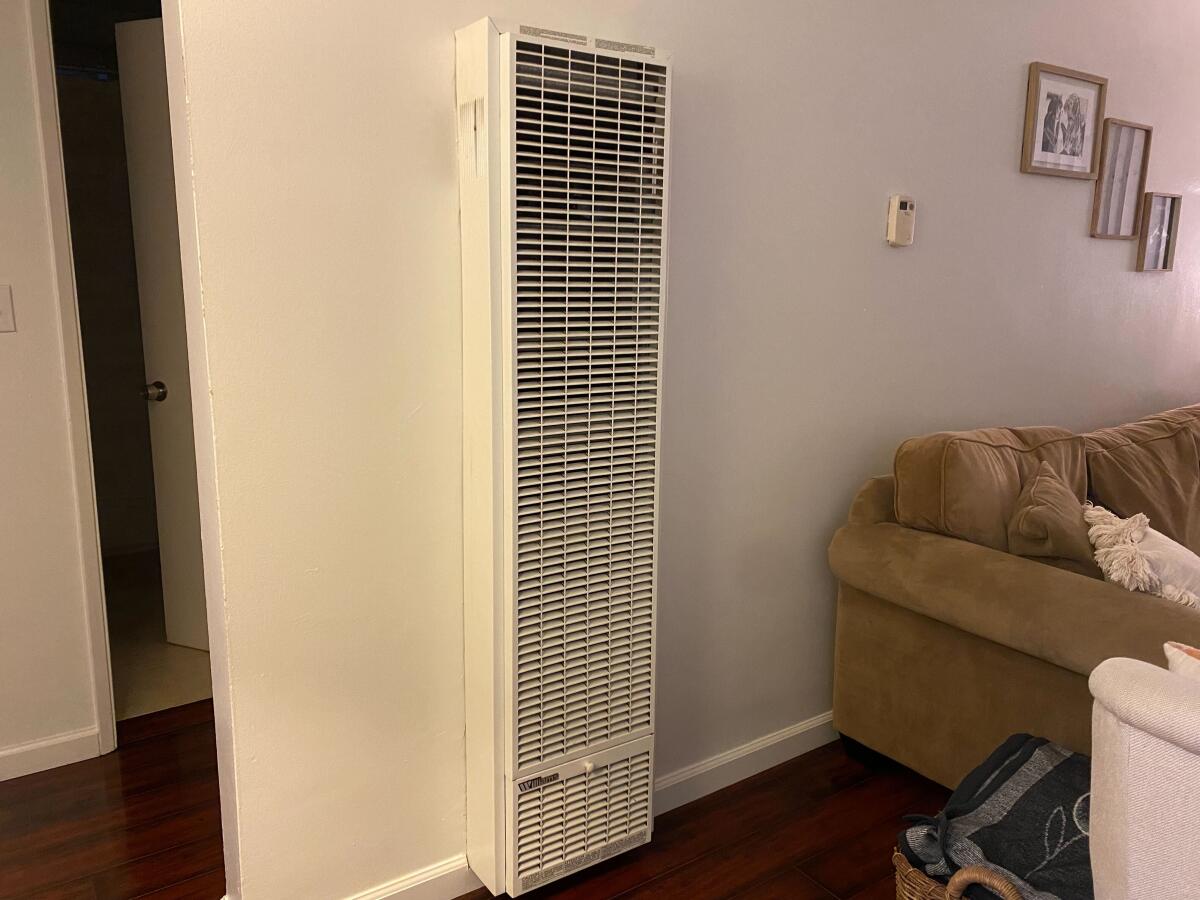
The recent drenching rains and the future storms predicted to hit Southern California are enough reason to stay home where it’s dry and warm.
For many renters, though, keeping the house warm means turning on a wall heater (gas or electric) for the first time in more than a year.
To ensure the heater works properly, Francis Dietz of the Air-Conditioning, Heating, and Refrigeration Institute said, keep an adequate amount of space free around it. That will also maximize performance and reduce fire risk, said Dietz, the institute’s vice president of public affairs.
For vented products, check that the vent is free of anything combustible or other obstructions that could inhibit airflow, he said.
Home heating sources — including wall heaters, furnaces, fireplaces, stoves and water heaters — are responsible for thousands of fires annually. The U.S. Fire Administration said that from 2017 to 2019, a yearly average of 34,200 heating fires were reported to fire departments across the nation, causing 165 deaths, 600 injuries and $367 million in property losses on average per year. In 27% of the confined residential building fires, a heat source was too close to combustible materials.
Some homes are heated by wall furnaces, which send heated air into multiple rooms through a system of ducts. If that’s how you stay warm, SoCalGas says you should clean inside the burner compartment once a month during the heating season to prevent lint build-up.
These heating units, and specifically gas-powered wall furnaces, should be checked at least once a year by a licensed heating contractor to avoid the threat of carbon monoxide emissions.
With the cost of natural gas skyrocketing, utility bills in Southern California are going to jump. To help manage the costs, SoCalGas offers several programs.
Electric wall heaters should be cleaned every three to six months. If you have one, follow the manufacturer’s directions on how to clean it properly.
But what if you turn on your heater and nothing happens?
That might be a sign that the pilot light on the heater has gone out. Checking and relighting a pilot light is something you can do yourself; SoCalGas suggests consulting the furnace owner’s manual or contacting the utility for assistance.
You can also make an appointment online to have a gas company employee come do it for you; log into your customer account and click the “service request” link, or call (877) 238-0092.
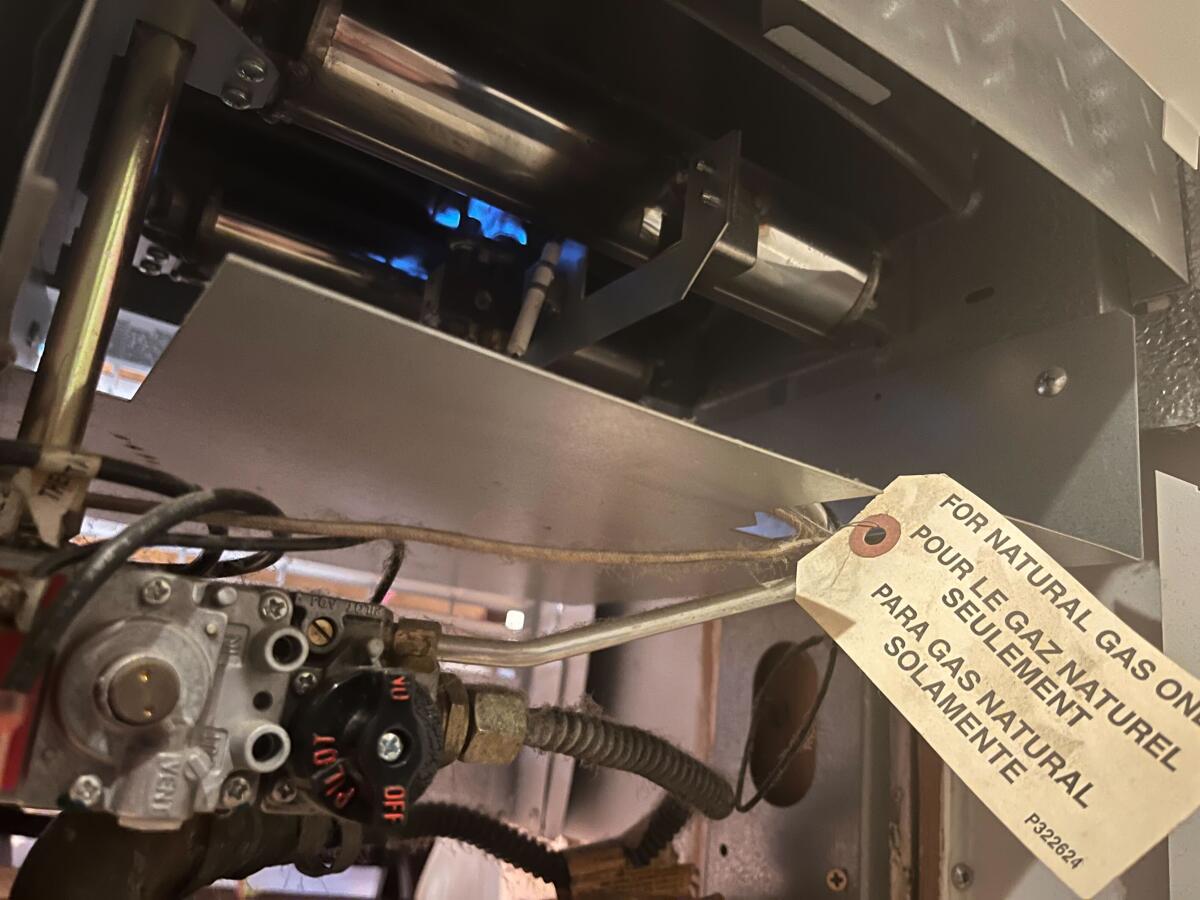
Bigger problems
If the heater at the home you’re renting is still not working, it’s your landlord’s responsibility to have a functioning heater in your unit.
State law requires landlords to maintain their rental units in safe and livable condition. That includes making sure the heater works, Mary Safaryan said.
Safaryan is an L.A. County Consumer and Business Affairs supervisor with the rent stabilization program. She said tenants are entitled to habitable living premises, including the “repair, replacement or installation of heating services, depending on what the situation is.”
“It’s extremely important to note that the lack of heating services does actually deem the rental unit uninhabitable, which essentially means that the rental unit is not safe for tenants to reside in,” she added.
When you’re having an issue with your heater, the first thing you should do is reach out to your landlord about the problem.
Let your landlord know that the heating unit is not in good working condition, Safaryan said, and submit a maintenance request. You can do this through a phone call, text, email or in person (some rentals have a property manager on site).
Even if you make your request over the phone or in person, it’s highly recommended that you submit a written maintenance request as well.
Putting the request in writing creates a paper trail for renters to show the problem exists and when they reported it, she said, adding, “So if it does become a situation where the landlord is further negligent, they have it documented.”
Renters don’t need to send their landlord proof of the issue. But if there’s visible damage to the heater, or if the gas company disconnects service and leaves a red tag on the furnace, take a picture and keep a copy for your records.
New research links gas stoves, which are used in about 40% of homes in the U.S., to childhood asthma.
What to do if help doesn’t come
What’s an appropriate wait time for repairs once you’ve alerted your landlord? Safaryan said minor repairs should be completed within about 30 days. A broken or nonexistant heater is considered an urgent repair, and landlords must immediately take the steps needed to make the necessary repairs.
If your landlord doesn’t answer your maintenance request or isn’t taking the steps to fix the issue, you can file a complaint with the appropriate government agency. For Los Angeles County residents, that’s the L.A. County Department of Public Health or their city’s department of building safety.
L.A. County Consumer and Business Affairs counselors can help you determine which jurisdiction you’re in and provide the appropriate contact information. You can also check for a tenant or housing support page on your city’s website.
If your heater isn’t working and your landlord hasn’t fixed it in a timely manner, the county agency will also let you know if your city’s ordinances provide another layer of protection for those living in uninhabitable conditions. For assistance, call (800) 593-8222.
Safaryan said state law lets tenants in uninhabitable rental units sue for damages, withhold rent or move out without penalty. If that’s your situation, she said, you should consult with an attorney.
About The Times Utility Journalism Team
This article is from The Times’ Utility Journalism Team. Our mission is to be essential to the lives of Southern Californians by publishing information that solves problems, answers questions and helps with decision making. We serve audiences in and around Los Angeles — including current Times subscribers and diverse communities that haven’t historically had their needs met by our coverage.
How can we be useful to you and your community? Email utility (at) latimes.com or one of our journalists: Jon Healey, Ada Tseng, Jessica Roy and Karen Garcia.
More to Read
Sign up for Essential California
The most important California stories and recommendations in your inbox every morning.
You may occasionally receive promotional content from the Los Angeles Times.
